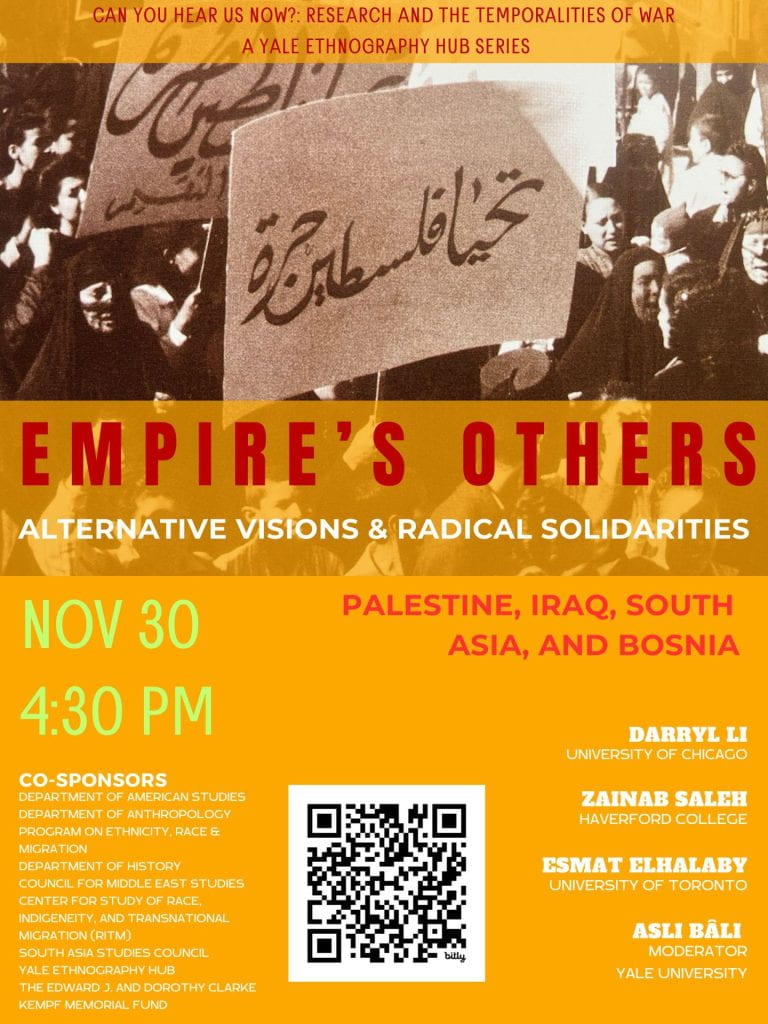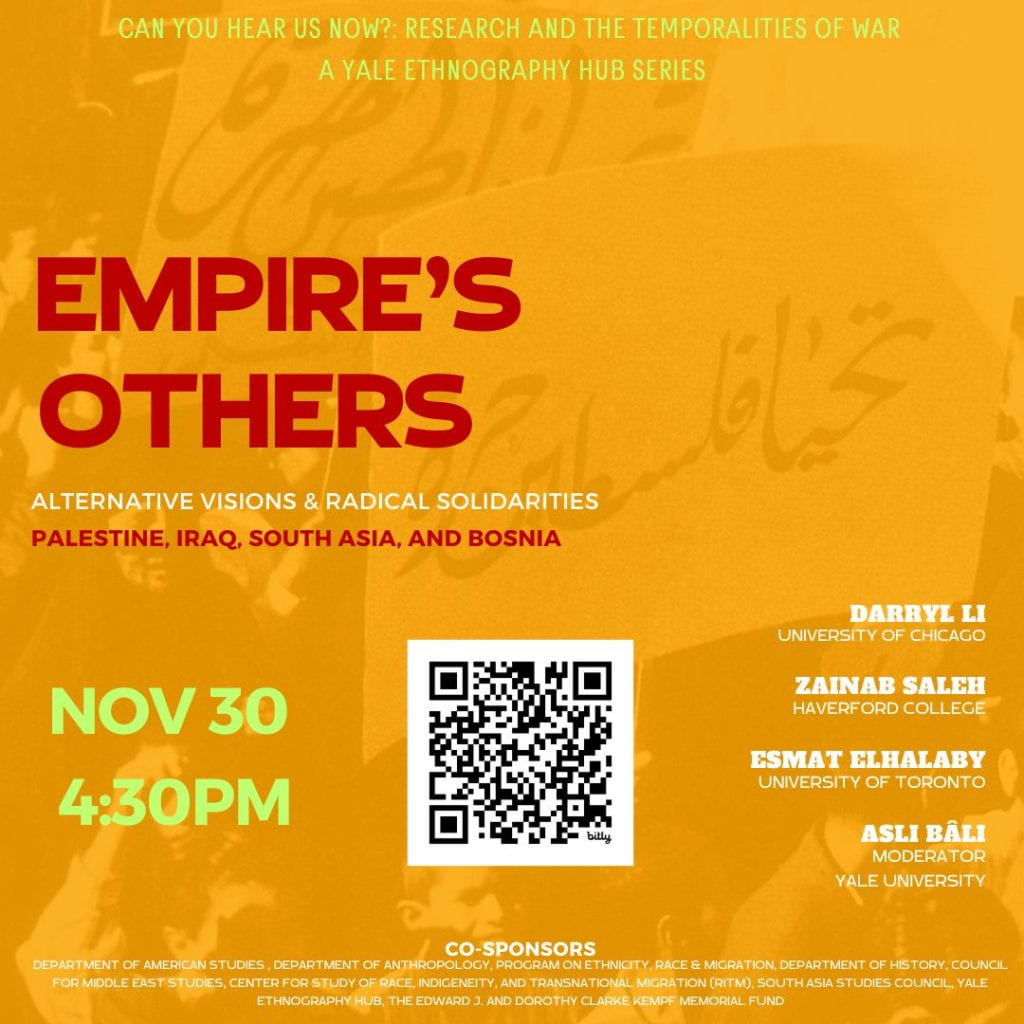
Can You Hear Us Now?: Research & The Temporalities of War | A Yale Ethnography Hub series
November 30 4pm | Location TBA
REGISTER HERE | Darryl Li (University of Chicago), Zainab Saleh (Haverford College), and Esmat Elhalaby (University of Toronto) discuss Iraq, Palestine, and researching war, empire, and solidarity movements. Moderator: Asli Bâli (Yale law school)
Darryl Li is an anthropologist and legal scholar thinking mostly about questions of war, law, migration, empire, and racialization in the currents between the Middle East, South Asia, and the Balkans. He is the author of The Universal Enemy: Jihad, Empire, and the Challenge of Solidarity (Stanford University Press, 2020), an ethnographic and archival study of “jihadist foreign fighters” in the 1992-1995 war in Bosnia-Herzegovina. The book develops an anthropological approach to the comparative study of universalism and was awarded the William A. Douglass prize from the Society for the Anthropology of Europe.
Li has participated in litigation arising from the “War on Terror” as party counsel, amicus, or expert witness in Alien Tort, material support, denaturalization, immigration detention, asylum, and Guantánamo (habeas and military commissions) proceedings. He is a member of the bar in New York and Illinois.
Zainab Saleh began her first book, Return to Ruin: Iraqi Narratives of Exile and Nostalgia(2021), as an inquiry into the transformation of the Iraqi political landscape both in Iraq and the diaspora and the reconfiguration of understandings of selfhood among Iraqis in London in light of US intervention in the country since the first CIA-backed Ba‘th coup of 1963 until their invasion of Iraq in 2003. Her current book project, Uprooted Memories: Citizenship, Denaturalization, and Mass Deportation in Iraq, is a continuation of her interest in imperial entanglements with an emphasis on legacies of British colonialism in Iraq by examining the politics of citizenship, belonging, exclusion, and deportation. Both projects are also informed by a commitment to studying relations of power and the networks of political activism and solidarity people devise in order to resist oppressive structures and imagine alternative futures.
Esmat Elhalaby is an Assistant Professor of Transnational History. He works principally on the intellectual history of West and South Asia. His research and writing focuses the Arab intellectual links with South Asia in the nineteenth and twentieth centuries, with a focus on the history of anti-colonialism, internationalism, and area studies. Elhalaby’s current book project is an intellectual history of decolonization.
His writing has appeared in Modern Intellectual History, American Quarterly, Michigan Quarterly Review, Dissent, Boston Review, and elsewhere. Before joining the University of Toronto, Esmat held postdoctoral fellowships at the University of California, Davis and NYU Abu Dhabi. He received his Ph.D in History from Rice University in 2019.

